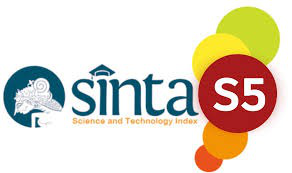Parental Involvement and Its Relationship with High School Students' Learning Achievement: A Comparative Study of Urban and Rural Schools
Abstract
Keywords
Full Text:
PDFReferences
Adeleke, R., & Alabede, O. (2022). Geographical determinants and hotspots of out-of-school children in Nigeria. Open Education Studies, 4(1), 345-355.
Đukić, T. M., Bogavac, D., Stojadinović, A. M., & Rajčević, P. Đ. (2022). Parental involvement in education and collaboration with school. International Journal of Cognitive Research in Science, Engineering and Education:(IJCRSEE), 10(1), 1-14.
Edwards-Fapohunda, M. O., & Adediji, M. A. (2024). The impact of the educational journey of special needs children on the employability, sociability, and economy of working-class parents in the UK. IRE Journals, 8(1), 421-422.
Ghanad, A. (2023). An overview of quantitative research methods. International journal of multidisciplinary research and analysis, 6(08), 3794-3803.
Koutsouveli, E., & Geraki, A. (2022). School Management and Climate to Enhance Parental Involvement. International Journal of Research in Education and Science, 8(4), 662-679.
Kusnanto, N., Sukristyanto, A., & Rochim, A. I. (2023). Relevance Of National Education Policies As An Effort To Improve The Quality Of Madrasah Tsanawiyah Education Services. The Spirit Of Society Journal: International Journal of Society Development and Engagement, 6(2), 136-151.
Lynch, J. (2021). Elementary School Teachers' and Parents' Perspectives of Home-School Engagement and Children's Literacy Learning in a Low-Income Area. School Community Journal, 31(1), 127-148.
Ma, L., Liu, J., & Li, B. (2022). The association between teacher‐student relationship and academic achievement: The moderating effect of parental involvement. Psychology in the Schools, 59(2), 281-296.
Quílez-Robres, A., Moyano, N., & Cortés-Pascual, A. (2021). Motivational, emotional, and social factors explain academic achievement in children aged 6–12 years: A meta-analysis. Education Sciences, 11(9), 513.
Sengonul, T. (2022). A Review of the Relationship between Parental Involvement and Children's Academic Achievement and the Role of Family Socioeconomic Status in This Relationship. Pegem Journal of Education and Instruction, 12(2), 32-57.
Zhang, H., Lee, I., Ali, S., DiPaola, D., Cheng, Y., & Breazeal, C. (2023). Integrating ethics and career futures with technical learning to promote AI literacy for middle school students: An exploratory study. International Journal of Artificial Intelligence in Education, 33(2), 290-324.
DOI: https://doi.org/10.46336/ijeer.v5i2.939
Refbacks
- There are currently no refbacks.
Copyright (c) 2025 Nurnisaa Nurnisaa, Mugi Lestari
Published By:
IJEER: Jalan Riung Ampuh No. 3, Riung Bandung, Kota Bandung 40295, Jawa Barat, Indonesia
IJEER Indexed By:
 This work is licensed under a Creative Commons Attribution 4.0 International License.
This work is licensed under a Creative Commons Attribution 4.0 International License.









